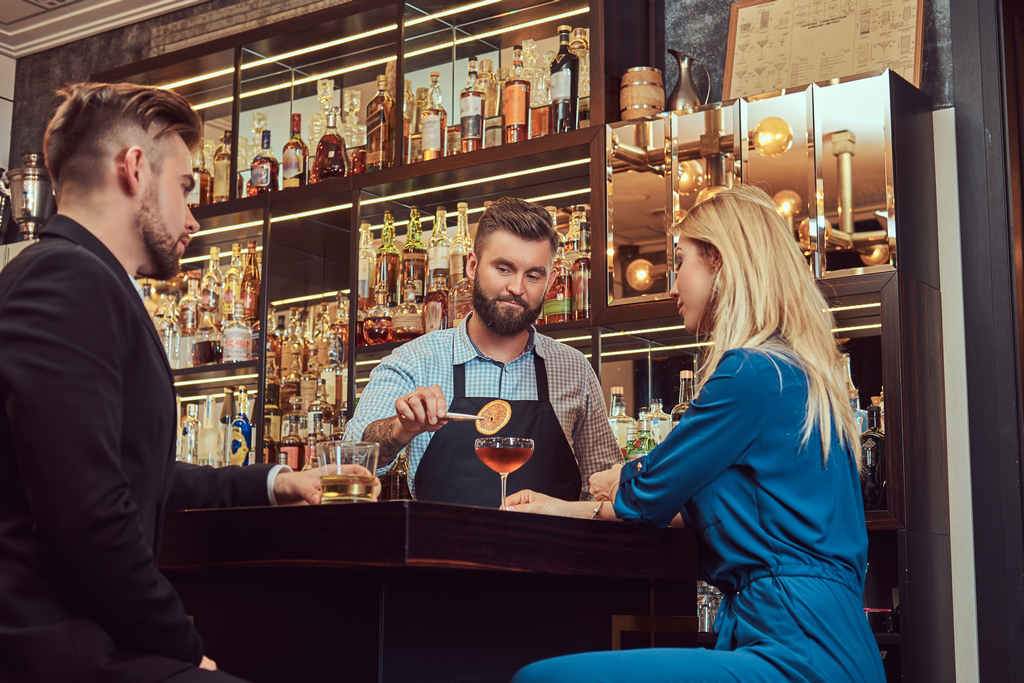Responsible Beverage Service (RBS) is a community-based approach to reducing risks associated with retail alcohol environments. RBS has three essential elements: policy development, merchant education, and partnerships with law enforcement. The purpose is to reduce alcohol-related problems by holding merchants accountable if they violate state and local laws, such as sales to minors and intoxicated patrons.

Good RBS means that bars check IDs, refuse service to drunk patrons, and the community gets involved to ensure safe alcohol service and sales. Research shows that simply training servers and sellers is not enough to create long-term change; a successful RBS program must be rooted in the community. This means conducting an assessment to find out which outlets are problematic.
Server training is part of RBS, but it must be connected to house policies that clearly define how alcohol is sold. Key management personnel must endorse these policies and everyone, from the doorman to the owner, must comply with local and state laws.
- Employees who complete alcohol seller-server training are able to prevent sales to minors, recognize signs of intoxication, reduce liability, and effectively intervene in problem situations.
- State-Approved Training
- 100% online - No Classroom Attendance
- Download Certificate Upon Completion
Goals of Responsible Beverage Service
Responsible Beverage Service (RBS), or server training programs, have two goals:
- to establish policies and procedures in retail alcohol outlets for preventing alcohol sales and service to minors and intoxicated persons; and
- to train managers and servers/clerks to implement those policies and procedures effectively.Server/clerk training focuses on serving and selling procedures, signs of intoxication, methods for checking age identification, and intervention techniques. Manager training includes the server/clerk training as well as policy and procedures development and staff supervision.
Mandatory RBS Programs
Experimental RBS programs first appeared in the early 1980s. States with RBS provisions have either mandatory programs or incentive-based voluntary programs. Voluntary, private programs exist to varying degrees in the other States, but those States do not have provisions that provide statewide structure for the design and implementation of these programs.
A program is designated as mandatory if State law requires at least some alcohol retail employees to attend an RBS training. Thirteen States require some type of RBS training, but these States vary widely in who must participate:
Type of employee : Statutes may require owners or licensees, managers and servers/clerks, or a subset of these classifications to participate;
Type of outlet : Statutes may require either on-sale or off-sale establishments, or both, to participate; and
- Date of license issuance : Statutes may require participation from establishments with licenses issued after the legislation is enacted or from all establishments, regardless of the date of the license.
Voluntary RBS Programs
The States that have established voluntary programs provide incentives for retailers to participate in RBS, but do not impose penalties for those who don’t. Incentives vary by State and include:
- a defense in dram shop liability lawsuits;
- mitigation of fines for sales to minors or intoxicated persons;
- discounts in dram shop liability insurance; and
- protection against revocation of a license for sales to minors or intoxicated persons.
The variables that pertain to voluntary incentives are as follows:
- Liability defense – Three States allow licensees to use their RBS training as a defense in dram shop liability cases.
- Mitigation of fines – Seven States allow fines for sales of alcohol to minors or intoxicated persons to be mitigated if the licensee can demonstrate that he or she participated in RBS training.
- Discount insurance – Three States allow discounts in dram shop liability insurance if the licensee has participated in RBS training.
- Protection of license – Three States provide protection against revocation for sales of alcohol to minors or intoxicated persons if the licensee has participated in RBS training.
Whether mandatory or voluntary, RBS programs vary in training curricula components; procedures for administering the program; certificate requirements for RBS trainers, servers/clerks, and managers; penalties for violations; and enforcement practices. These variables may have a dramatic impact on the program’s effectiveness in reducing sales to minors and intoxicated persons.


























